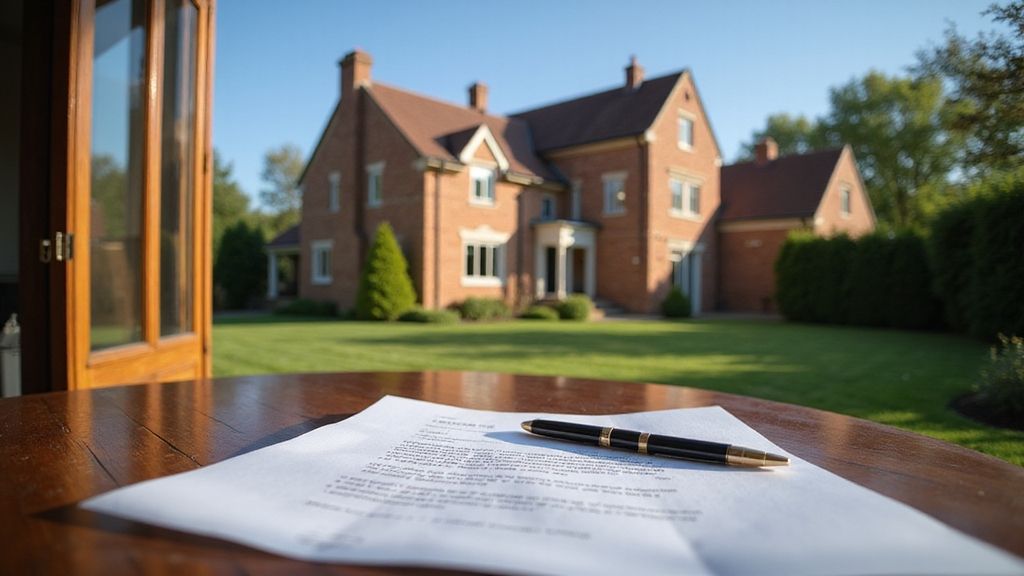What To Do When a Tenant Trashes Your Rental Property
Investing in rental property as a landlord is a worthy cause and a means of generating passive income. That’s why when we buy houses in Pennsylvania, we invest money to keep the property clean and safe for the tenants.
Chances are, as a landlord, you’ve put a lot of time and money into your rental property and screening tenants. But despite your best efforts, you may get tenants that end up seriously damaging your rental property either accidentally or on purpose.
Fortunately, you can get your apartment in proper shape and get compensation if the tenant damages the property without provocation.
Keep reading to understand how to kick-start the repair process and sue your tenant for criminal damage.
First Off: What Are The General Obligations of Tenants And Landlords?
Different states have varying regulations governing tenant-landlord relationships in renting agreements. However, the underlying factor is that landlords and tenants alike have legally-binding obligations to observe in their renting process.
When we buy houses in Pennsylvania, the Landlord-Tenant Law protects tenants from irresponsible landlords while giving landlords legal options to take against destructive tenants.
Under the law, landlords should only repair damages from an ordinary wear on their rental property. In addition, they’re responsible for damages caused by natural forces such as weather elements.
On the other hand, tenants should carry a financial and legal responsibility for any damages arising from their negligence or that of their guests. Tenants must also observe reasonable care and not damage the property they’re renting.
How Should You Handle Damage On Your Property?
Stay Objective
Extensive damage to your property can be aggravating due to massive cost implications. However, making rash decisions could be costly in the long run.
For instance, if you evict the tenant from your property without a valid court order, you could be sued for unlawful eviction. Experts, therefore, recommend sound objectivity when handling disputes with a tenant on your property.
Assess The Situation
A vital step following damage to your property is assessing the damage to ascertain that the tenant caused the damage. Here, you can review if you have had past issues with the tenant, which could trigger an emotional outburst.
In addition, you could try to unravel if the damage was intentional or accidental. If the damage were accidental, the tenant would most likely notify you when it happens and take full responsibility for the damage.
Document Evidence From The Scene
When handling severe property damages, it is advisable to document each extent of the damage. You can walk through the property while taking still photos and videos accompanied by relevant commentaries describing the damage.
Documenting the evidence will come in handy if you agree with the tenant to deduct a portion of the security deposit for repairs. In addition, if you intend to report in a small claims court, documented evidence will help you back up the case.
Get Repair Estimates
Extensive damages beyond normal wear could render your apartment uninhabitable for some time. It is advisable to bring a qualified contractor as soon as possible, if I need to
sell my house fast Pennsylvania. An excellent way to ensure an accurate estimate is to get several quotes from different bidders.
Negotiate With The Tenant
Once you assess the situation, document the evidence, and get your estimates, it is time to bring the tenant on board. A little kindness will come a long way to help you solve the problem amicably and reach a meaningful solution.
First, you should let the tenant know the extent of the damage and seek their opinion on how to fix it. Depending on your relationship with the tenant, you may agree to split the costs or simply ask the tenant to settle the cost of repairs.
Alternatively, you can deduct the expenses from the tenant’s security deposit or draft an agreeable payment plan.
How To Handle a Rogue Tenant
Sometimes, you’ll encounter a rogue tenant who acts without remorse for the damages caused on the property. Worse still, the tenant may be hostile and responsive. If you’ve made futile attempts to resolve the damage with your tenant, it may be time to take the required legal action.
The following key steps will come in handy while dealing with a rogue tenant:
Contact The Police
It is advisable to report the matter to the police if a hostile tenant continues to damage your property deliberately. Moreover, if the tenant steals some of your home appliances, the police may institute criminal charges for theft against the tenant. A police report would also be necessary if you intend to seek compensation from your property insurer.
Contact Your Insurance Agent
An insurance policy may cover a portion of the damage incurred on your property. But first, you’ll need to contact your agent to file a claim and the possibility of getting compensation.
In most cases, filing a compensation claim will require you to dig deeper into your pocket since your annual premiums will equally increase. Therefore, conducting a cost-benefit analysis is advisable before you file your compensation claim.
Sue The Tenant
A small claims court is the best platform to sue a rogue, non-compliant tenant for damages exceeding the security deposit. In a small claims court, a jury may order the tenant to pay you for all the damages to the property. Ensure you have documented evidence from the crime scene to support your court claims.
File For Eviction
An eviction notice is usually the last resort in settling a dispute between the landlord and the tenant. However, executing an eviction is relatively slower since you need an eviction order from the court.
Before then, the court will receive your formal application for eviction and notify the tenant of a lawsuit for their eviction. Afterward, the court will grant the tenant an opportunity to file their response and issue an eviction notice where applicable.
Generally, a landlord may file for a tenant’s eviction under different circumstances, including;
- Failure of the tenant to pay rent.
- Severe damage to the property by the tenant.
- Severe injuries to the landlord by the tenant.
- Non-compliance after lease expiry.
- Carrying out illegal activities on the property.
Give us a call anytime at 484-484-0971 or fill out this quick form to get started today!
Get A Fair Cash Offer On Your House

About the author
Mathew Pezon
Mathew Pezon is the founder and CEO of Pezon Properties, a cash home buying company located in Lehigh Valley, Pennsylvania. With several years of experience in the real estate industry, Mathew has become a specialist in helping homeowners sell their properties quickly and efficiently. He takes pride in providing a hassle-free, transparent, and fair home buying experience to his clients. Mathew is also an active member of his local community and is passionate about giving back. Through his company, he has contributed to various charities and causes.















